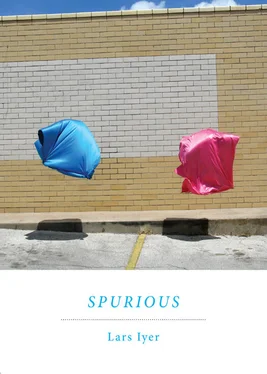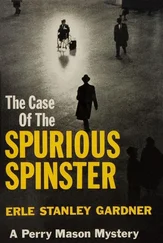He can picture me, he says, hungover as usual, bleary-eyed as usual but full of a vague, stupid hope, with the sense that this time, despite its resemblance to all other times, will be different.
This time it’ll be okay. This time it’ll come good. That’s my messianism, W. says, and it’s all I’ll ever know or understand about messianism, that vague sense that things will be different this time, even as everyone else knows they will be exactly the same.
‘Even you feel it, don’t you, that messianic hope? Even you, like the animals who come out of their burrows after winter, shivering but excited. But do you actually think you’re going to be redeemed?’
W. himself can’t shake it free, that hope, that springtime of the spirit. One day, he feels, he will be able to think. One day, his thoughts will rise as high as the Messiah, the sun in the sky of the future. Oh he knows it’s impossible, he says, he knows he’ll never have an idea, but that’s what the coming of the Messiah must mean: the impossible, which is to say, an idea, an idea that would belong to W.
Is that why he writes? W. wonders. Is that why he accepts invitations to speak? Is that why the hope is reborn eternally in him that it will be different this time? In the end, that’s what we share, W. decides. A sense that the apocalypse isn’t quite complete, and that there are still grounds for hope.
W. reminds me of the old story of the Messiah who remains hidden with the lepers and beggars at the gate of Rome. There he was all along; but is he there? When the Rabbi stands before him to ask when he will come, what does he say? Today, if you will hear my voice .
Today! Then the Messiah is here! But he is not here. There are conditions to his coming, and the leper-Messiah, who binds his wounds alongside the beggars at the gates of Rome, is not here yet.
There’s a great lesson in this, W. says, though he’s not sure what it is. When’s the Messiah going to come? Today? Tomorrow? He’s not sure, W. says, but it’s only when you’ve exhausted everything, when there’s no more hope, that the Messiah might appear.
Of course, I’ve long since worn W. out, he says. I’m hopeless, W. says. I’m unredeemable. W. knows it. But why then does he talk to me? Why does he continue with our collaboration?
Perhaps he hopes for something nonetheless, W. reflects. And perhaps it’s only when he gives it up that the Messiah will arrive. Which would make me some kind of antichrist, W. surmises. A kind of living embodiment of the apocalypse.
The electrician came out, I tell W. — ‘It needs rewiring’, he said, ‘the whole flat’. I ignored him. There was light, and that was enough. The light in the kitchen is still working. It doesn’t flicker; it’s steady. Which means you can gaze upon the damp. You can gaze, fascinated, at the damp and the plaster mottled with damp. It doesn’t hide, the damp. It isn’t shy. It is there, obvious. It announces itself calmly. It says, here I am , with quiet plainness. And there it is, I tell W. A fact. Absolute damp. Damp beyond all damp meters. — ‘It’s off the scale’, said the drying expert who’ll bring the machines.
Inside, in the kitchen, the damp continues to spread, but calmly, changing the colour of the wall. Along its spreading edges, thick salt falls to pile at the base of the wall and along the worksurfaces. Grit still falls from one corner of the ceiling. The wet walls are marked with mildew like liver spots on an elderly hand. And along the window sill, the plaster has turned a mottled green.
I have a small fan heater which I aim at this part of the wall, and then that, I tell W. Gradually, the plaster changes colour from an angry dark brown, mottled with dark green and black mould, to a calmer, lighter pink. It seems a miracle; it seems I’m winning, I tell W., how can this be? But then it comes back again, a wave of dark brown.
Periodically, I go out to the kitchen with some kitchen roll, and wipe down the great sweating surface. There’s always a layer of water on the wall like a sweat sheen. I marvel. Is the wall alive? Does it live in some strange way? What is the meaning of the salt crystals which form on the wall? Is the salt the way it expresses itself, or dreams? Is it conscious and groping towards me to communicate? My flat is the satellite that turns around the damp, and I am the astronaut fascinated only by its changing surface.
Whole religions have formed around less, I tell W., around damp, and the source of damp.
W. sends me some quotations from the Talmud.
Seven things are hidden from men. These are the day of death, the day of consolation, the depth of judgement; no man knows what is in the mind of his friend; no man knows which of his business ventures will be profitable, or when the kingdom of the house of David will be restored, or when the sinful kingdom will fail .
W. likes lists, he says. It’s a Borges thing. — ‘This quote is especially for you’, he says:
Proselytes and those that emit semen to no purpose delay the Messiah .
‘For how long have you personally delayed the coming of the Messiah?’, says W. ‘Years? Millennia?’
W. is sure he heard somewhere or another — at a lecture, symposium or suchlike — about the stupid Messiah, and this has oriented his research ever since. The stupid Messiah, whatever can that mean? When did this figure appear? Under what circumstances?
Of course, there is a long tradition of the occultation of the Messiah, W. says. The idea, that is, that the Messiah has already arrived, if only we could find him (if only we knew how to find him). Then there’s the belief that it’s only when certain conditions are satisfied that he will reveal himself to be where he always was. The moral improvement of humankind, for example.
But what could it mean to think of a Messiah so stupid that he is occulted from himself? Of a Messiah who does not have the intelligence to know he is the Messiah? There’s a tradition, of course, that the Messiah would be the one who broke the law rather than simply fulfilling it. Whence the apostasy of Sabbatai Zevi, whose followers likewise committed apostasy, it being a sign for them of the kind of test the Messiah would ask them to undergo.
Would the stupid Messiah have stupid followers? W. wonders. Followers so stupid they wouldn’t know who they were following, or what it meant to follow? Mystery upon mystery, says W. But at least it goes some way to explaining my significance vis-à-vis messianism. Because I’m attracted to it, aren’t I, in my own stupid way? Even I have a sense of the importance of the messianic idea as I circle around it in my stupidity.
W. is a little less unwitting than I, he says, a little less stupid. And perhaps that means I’m a truer follower of the stupid Messiah, he says, he’s not certain.
Are we religious? we wonder. I’m never quite sure. We feel things about religion, that’s already something. There’s an immense pathos about religious matters for us, that’s certain. But are we religious, I mean really religious?
Wasn’t it pathos that nearly made a Christian convert of Rosenzweig? we wonder. Wasn’t it the pathos of his friend Eugen Rosenstock, with whom he spent so many nights in conversation? There was one conversation in particular — that of the night of June 7th, 1913—which ended with Rosenzweig holding a pistol to his temple.
He had confronted the Nothing, he said later. He’d come to the very end. Rosenstock had persuaded him Judaism was outmoded, forgotten, and that Christianity was the only way redemption could be brought to the world. Rosenzweig agreed, but that wasn’t what disturbed him. Asked what he would do when all the answers failed — when the abstract truths of logic failed to satisfy him — Rosenstock had said with great simplicity, I would go to the next church, kneel and try to pray .
Читать дальше












